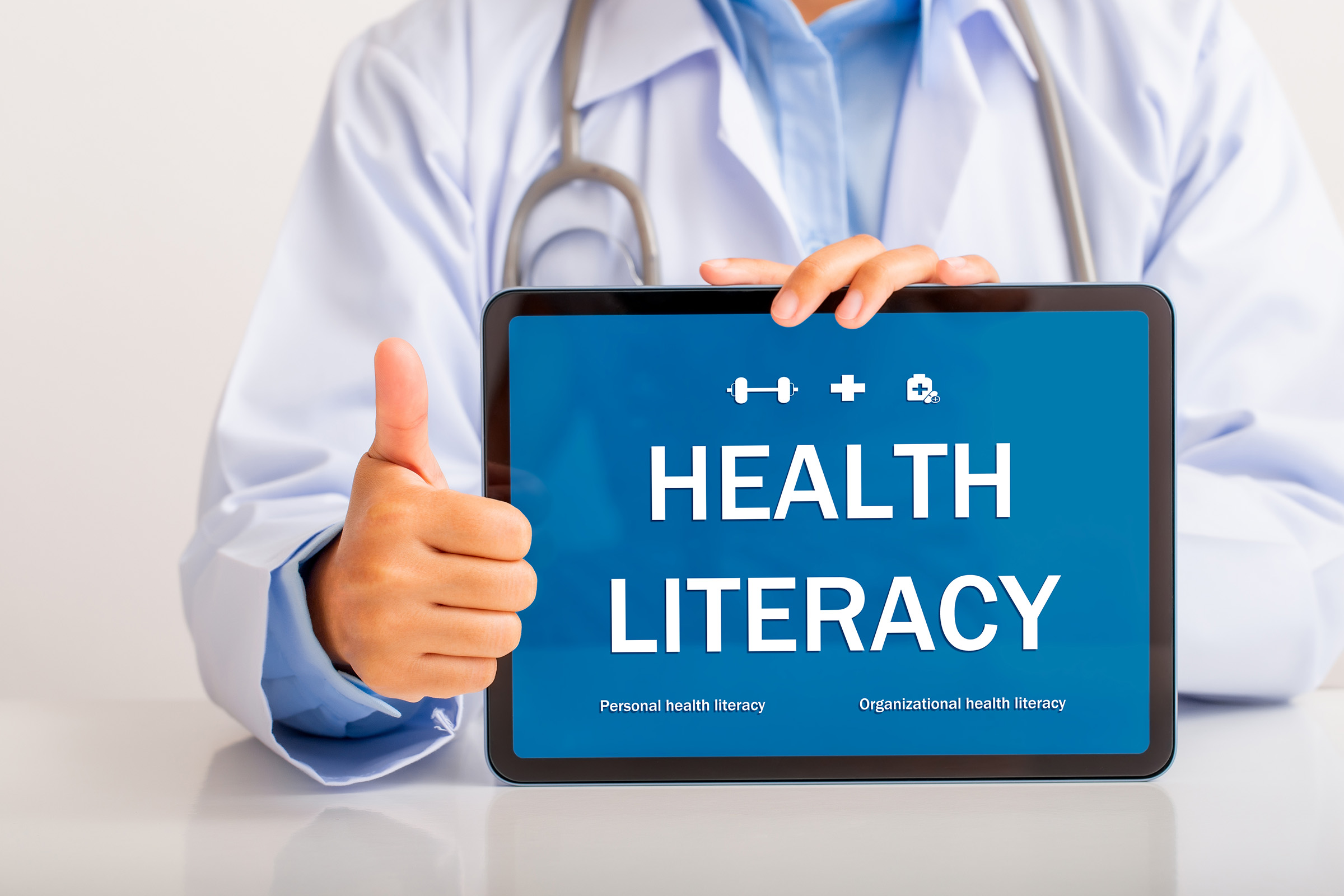Literacy Can Affect a Person’s Health
Tuesday, September 13, 2022
How does literacy affect a person’s health? Literacy is the ability to ready, write, compute and solve problems of proficiency necessary to function at a job, in the family and in society. So, what exactly is health literacy? It’s the degree to which individuals have the ability to find, understand, and use information and services to make informed health-related decisions and actions for themselves.
Megan Monteith, Oklahoma State University Extension health disparities area specialist, said health literacy requires a complex group of reading, listening, analytical and decision-making skills, along with the ability to apply these skills to health situations.
“Health literacy is a key social determinant of health,

or factor in the environment that affects people’s health. More than one-third of adults in the U.S. have low health literacy,” Monteith said. “According to the National Center for Education Statistics, people aged 65 or older with self-reported poor health, have health insurance from Medicare Medicaid or have no insurance; live below the poverty level; are Hispanic or Black; and more likely to have poor health literacy skills.”
The Centers for Disease Control and Prevention indicates that nine out of 10 adults struggle to understand and use health information when it’s unfamiliar, complex or filled with jargon.
“Unfortunately, limited health literacy has very real consequences on a person’s health. Adults with limited health literacy have more serious medication errors; higher rates of emergency room visits, hospitalizations and death; and worse preventative care and health outcomes for their children,” she said. “In addition, those adults are more likely to report poorer overall health and have poorer ability to manage chronic diseases, and they’re less likely to understand their diagnosis.
Monteith also noted that individuals with low health literacy are less likely to have screenings or preventative care, tend to seek treatment in later stages of the disease and are more likely to be hospitalized and re-hospitalized.
Some individuals have difficulty understanding the correct dosage of medicines, misinterpret warnings on prescription labels or simply don’t know when their next appointment is scheduled.
“Each day, millions of adults make decisions and take actions on issues that protect not only their own well-being, but also that of their family members,” she said. “This goes beyond the traditional health care settings such as a doctor’s office or hospital. These actions take place in homes, at work and in schools across the state and country. The combination of errors made with these decisions is estimated to cost the health care system between $50 billion and $73 billion per year.”
This is why it’s so important for individuals to know how to read, write, compute and solve problems. In Oklahoma, 43% of the residents are unable to perform more than simple, everyday literacy activities. On average, about 24 percent of students starting high school as a freshman drops out of school prior to graduation. Also, 59% of Oklahoma students live in poverty.
“A rise of 1% in literacy scores leads to a 2.5% rise in labor productivity,” Monteith said. “The higher the literacy scores, the more likely individuals are of having a better understanding of health issues and treatment.”
